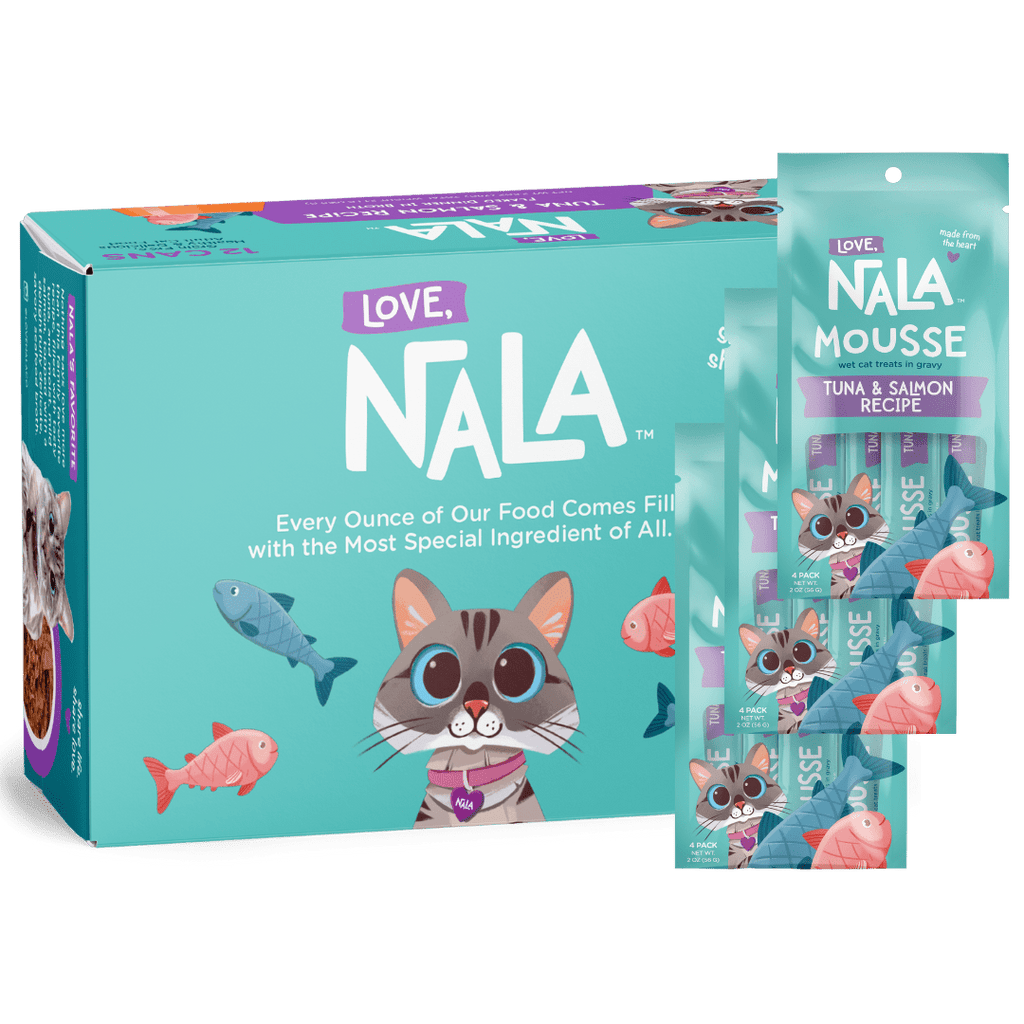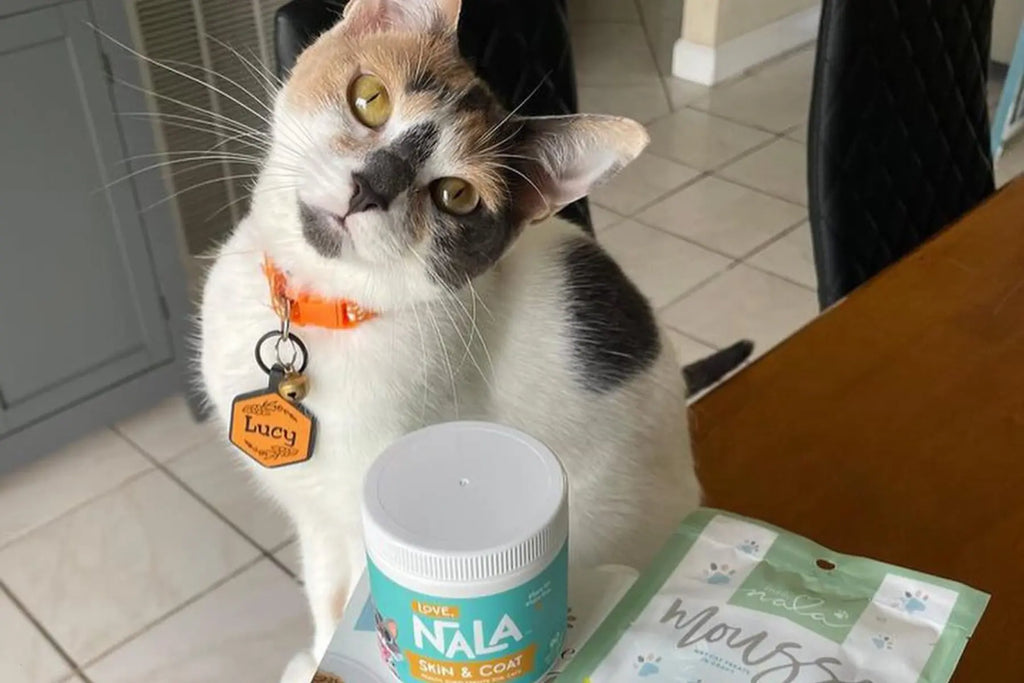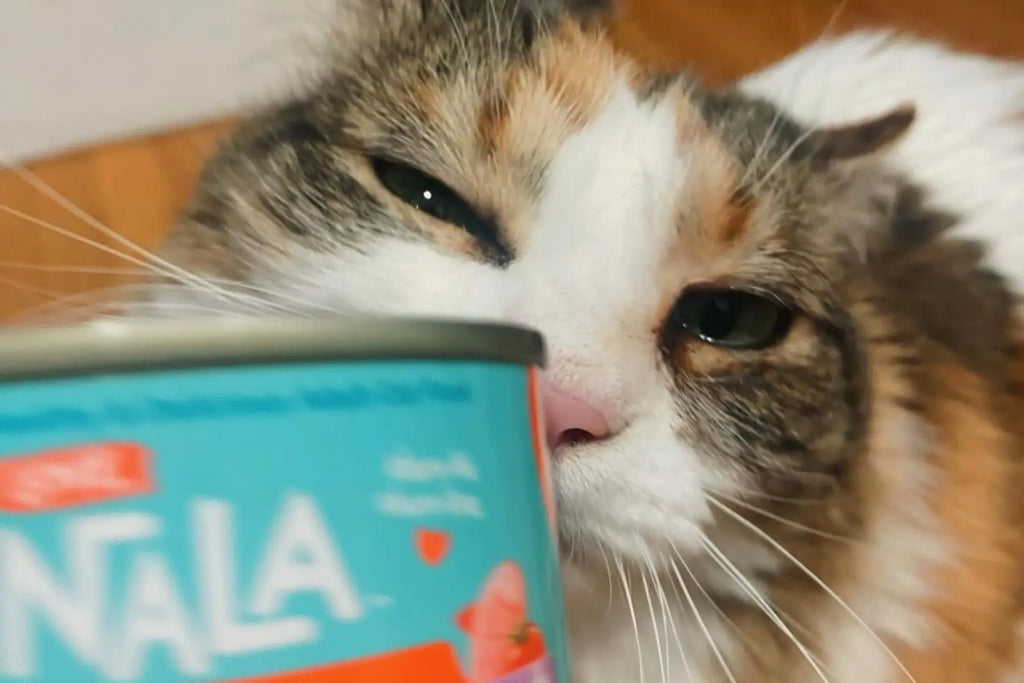Feeding your cat a high-quality diet that meets their nutritional needs is important for maintaining their health and well-being. Chicken is a popular ingredient in many cat foods, and for good reason. In this post, we'll explore the nutritional value of chicken for cats and discuss the benefits of feeding your cat chicken cat food.

Nutritional Value of Chicken for Cats
The Importance of Protein in a Cat's Diet
Protein plays a crucial role in the overall well-being and health of cats, serving as a fundamental building block for the development and maintenance of body tissues, organs, and various physiological systems. It is vital in the synthesis of hormones, enzymes, and antibodies, all of which are essential for normal body functions. Proteins are composed of amino acids, some of which are considered essential because the cat's body cannot produce them on its own. These must be obtained through their diet, emphasizing the importance of high-quality protein sources in cat food.
Cats are obligate carnivores, which means their bodies are designed to digest and utilize nutrients from animal products more efficiently than plant-based proteins. Animal-based proteins contain a complete amino acid profile necessary for a cat's health. A protein deficiency can lead to a host of health issues. Muscle weakness is a direct consequence of insufficient protein intake, as proteins are responsible for muscle growth, repair, and maintenance. Without adequate protein, cats cannot sustain healthy muscle mass, leading to decreased strength and mobility.
The Benefits of Chicken as a Protein Source
Chicken is indeed a favored ingredient in cat diets, primarily due to its high-quality lean protein content. This lean protein source is especially beneficial for cats, as their digestive systems are well-adapted to process and utilize animal proteins efficiently. Chicken is not just low in fat but also provides essential fatty acids. These fatty acids play a crucial role in preventing dry, flaky skin and ensuring that cats maintain an appealing, healthy appearance. Additionally, chicken is a source of essential amino acids like taurine, which cats cannot produce in sufficient quantities on their own. Taurine is crucial for heart health, vision, and reproductive functions, making chicken an even more valuable component of a cat's diet.
For overweight or obese cats, chicken serves as an excellent protein source that helps manage and reduce weight effectively. Its low-fat content helps in formulating a diet that is high in necessary nutrients without the added risk of weight gain. This makes chicken-based foods a preferred choice for weight management and obesity prevention programs tailored for cats.
Vitamins and Minerals Found in Chicken
Incorporating chicken into a cat's diet can significantly contribute to its nutritional needs, offering a range of benefits that support bodily functions, growth, and overall well-being. Let's delve into the specific nutrients found in chicken and how they benefit our feline friends:
- B Vitamins: These vitamins are critical for the optimal functioning of a cat's metabolism. They aid in the digestion process by breaking down carbohydrates, fats, and proteins into energy that the cat can use. This energy is essential for everyday activities, from playing and exploring to simply regulating body temperature. Moreover, B vitamins contribute to healthy skin, fur, and muscle development, ensuring that cats not only have the energy they need but also maintain a good physical appearance and muscle mass.
- Zinc: An indispensable mineral, zinc plays a multifaceted role in a cat's health. It is a key component of a strong immune system, helping to fight off infections and diseases. Additionally, zinc is involved in the process of wound healing, ensuring that any cuts or abrasions a cat may suffer heal quickly and efficiently. It also supports the growth and development of young cats, making it a vital nutrient for kittens. Beyond these benefits, zinc contributes to maintaining healthy skin and coat, preventing issues like dryness, flaking, or hair loss.
- Other Nutrients: Chicken is an excellent source of high-quality protein, which is essential for the growth, repair, and maintenance of body tissues. This protein supports muscle development and strength, which is crucial for cats of all ages. Essential fatty acids found in chicken helps in developing a shiny coat and healthy skin, reducing inflammation, and may even support cognitive functions. Other minerals and vitamins present in chicken support various bodily functions, including heart health, bone density, and nerve function.
It supports their physical health by ensuring that they have the necessary nutrients for energy production, immune defense, and tissue repair. As a result, chicken is more than just a delicious meal for cats—it's a key ingredient in their journey towards a healthy and happy life.
Choosing the Best Chicken Cat Food
When choosing a chicken cat food, it's important to look for a high-quality, grain-free cat food that contains real chicken as the first ingredient.
The Importance of Reading Labels and Choosing a High-Quality Cat Food
Reading ingredient labels is essential for ensuring that you're providing your cat with the best nutrition possible. Look for high-quality cat food that lists a high-quality protein source as the first ingredient, and avoid cat food that contains fillers, by-products, or artificial additives.

Tips for Selecting the Best Chicken Cat Food
Choose a cat food that's appropriate for your cat's life stage, and consider their individual nutritional needs. It's also important to monitor your cat's response to the food and make adjustments as needed.
How to Feed Your Cat Chicken
Feeding your cat chicken can be a great way to incorporate more protein into their diet. Here are some tips for feeding your cat chicken.
Amount of Chicken to Feed Your Cat
Determining the right amount of chicken to feed your cat involves careful consideration of their individual nutritional needs, which can vary significantly based on size, age, activity level, and overall health. As a rough guideline, chicken or any other single protein source should constitute only a small portion of a balanced diet, typically no more than 10-15% of the cat's total daily food intake.
For kittens, who are in a rapid growth phase, the diet must support their development needs with a higher protein content, yet it’s crucial to maintain balance and not over-rely on a single protein source like chicken. Active cats will burn more calories and may require a slightly higher intake of protein to support energy levels.
Precautions and Safety Measures for Feeding Your Cat Chicken
Incorporating chicken into your cat's diet can offer a valuable source of protein and essential nutrients, contributing positively to their overall health. However, to ensure that this addition benefits your cat without causing any harm, it's crucial to follow specific safety measures:
- Bones and Skin Removal: It's imperative to remove all bones from the chicken before offering it to your cat. Chicken bones, whether cooked or raw, can easily splinter and pose a serious risk of choking or causing internal injuries, such as punctures in the digestive tract. Additionally, the skin of the chicken, while appealing to cats due to its fatty texture and taste, is high in fats that can lead to obesity and associated health problems over time. Removing the skin ensures that your cat enjoys the benefits of chicken without the added risk of excessive fat intake.
- No Seasonings: Cats' digestive systems are particularly sensitive to additives and seasonings that are commonly found in human foods. Ingredients such as garlic, onion, and certain herbs and spices, which might seem harmless to humans, can be toxic to cats, leading to gastrointestinal upset or more severe health issues. Therefore, when preparing chicken for your cat, it should be cooked without any added seasonings, to avoid the risk of toxicity and ensure it is safe for consumption.
- Cook Thoroughly: To eliminate the risk of foodborne illnesses, any chicken fed to your cat must be cooked thoroughly, with no pink parts remaining. Raw or undercooked chicken can harbor harmful bacteria such as Salmonella or Campylobacter, which can lead to serious health complications in cats. Ensuring the chicken is well-cooked before serving it to your cat can prevent these potential risks, making it a safe addition to their diet.
By taking these precautions into account, you can make chicken a safe and nutritious part of your cat's diet. This not only provides them with a tasty and healthy protein source but also helps in maintaining their overall health and vitality. It's a simple yet effective way to enrich your cat's diet while ensuring their safety and well-being.
Benefits of Chicken in a Cat's Diet
Cat food with chicken offers many benefits for cats, including improved muscle mass, increased energy and vitality, better digestion and nutrient absorption, and healthier skin and coat. Here are some of the key benefits of chicken in a cat's diet:
Improved Muscle Mass and Strength
Chicken is a great source of high-quality protein, which is essential for building and maintaining muscle mass and strength in cats. This can be especially important for senior cats or cats recovering from an injury.
Increased Energy and Vitality
A diet that's high in protein can help keep cats energized and active. Feeding your cat chicken cat food can give them the energy they need to play, explore, and stay healthy.
Better Digestion and Nutrient Absorption
Cats need a diet that's easy to digest, and chicken is a lean protein that's easy on their digestive system. This can help ensure that they're getting the nutrients they need to stay healthy.
Healthier Skin and Coat
Chicken is a great source of essential fatty acids that can help keep your cat's skin and coat healthy and shiny. A diet that's high in protein can also help prevent dry skin and other skin conditions.
Reduced Risk of Obesity and Diabetes
Feeding your cat a diet that's high in protein can help keep them at a healthy weight, which can reduce the risk of obesity and diabetes. Chicken cat food can be a great option for cats who are overweight or at risk for these conditions.

Considerations for Cats with Special Nutritional Needs
If your cat has special nutritional needs, such as a health condition or sensitivity to certain ingredients, it's important to consult with a veterinarian to determine the best diet for them. You may want to consider chicken wet cat food or chicken dry cat food. Your vet can help you choose a chicken cat food that's appropriate for your individual needs.
Feeding your cat chicken can be a great way to provide them with the high-quality protein they need to stay healthy and active. When selecting chicken-based cat food, prioritize products that are not only grain-free but also free from artificial preservatives and fillers, ensuring your cat receives the most natural and beneficial form of this protein. Additionally, it's important to observe your cat's health and behavior closely after introducing new food, as individual cats may have unique dietary needs and sensitivities. By attentively selecting their food and monitoring their health, you contribute significantly to your cat's longevity, happiness, and well-being, reinforcing the bond you share with your feline companion.




















